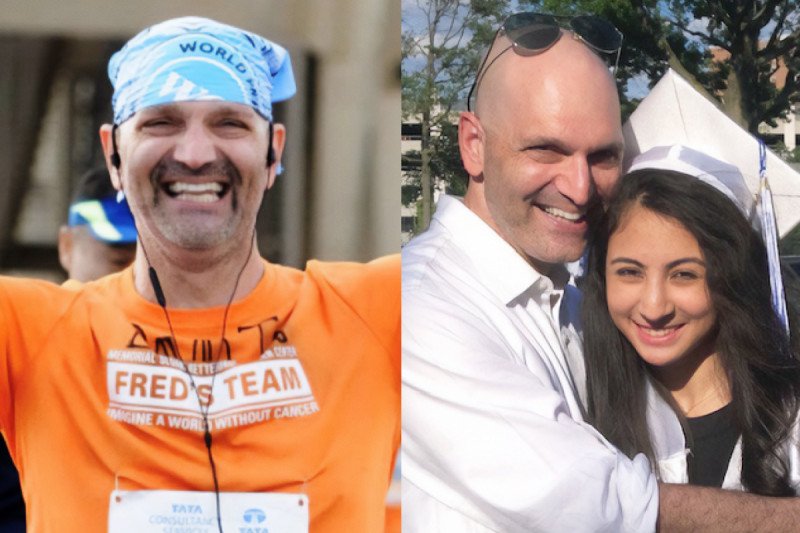
For David Jay Smith, coming out was like Dorothy entering Oz.
“My world went from black and white to Technicolor,” says David, who works at Memorial Sloan Kettering as a patient representative. “It was a transformative experience.”
David knew at a young age he was “different” but struggled for years to figure out how. “Growing up, I didn’t know anyone who was gay,” he says. “I didn’t see gay men in popular culture — on TV, in books. I didn’t know what a gay adult could look like. So, for a long time, I didn’t have the language to say, ‘I’m not different. I’m just gay.’”
In high school, he finally “connected the dots” and came out when he was 17. “It was such a relief. Everything that had been gnawing at me, all those anxieties, ceased,” he says.
Since then, David has lived openly and proudly, committing to “being as visible as possible.”
“The most important step we as members of the LGBTQ community can take is to be visible, be everywhere, and make our voices heard,” David says.
One way David makes his voice heard is as a member of MSK’s LGBTQ Clinical Advisory Committee. Founded in 2017, the committee advises MSK staff on the clinical care of LGBTQ patients and provides strategic direction for the advancement of care for LGBTQ populations.
“There are a lot of disparities in healthcare for LGBTQ people, and it is tremendous that MSK set up this committee to look into these disparities and how to address them,” David says. He points to the sexual orientation and gender identity (SOGI) data program as a prime example of MSK’s commitment to fostering an inclusive, patient-centered care culture.
“This is a major step forward, particularly for transgender patients,” explains David. “Including these pieces of information in a patient’s chart enables us at MSK to ensure our transgender patients feel welcomed, heard, and respected, particularly when healthcare so often marginalizes or ostracizes them.”
What Pride Month Means to David
David is all too familiar with the painful effects of ostracism, he says. He came of age at the beginning of the AIDS crisis, when many called the virus the “gay men’s disease.”
“We were told people didn’t want gay men living in their apartment buildings. Companies didn’t want to hire gay men because they feared AIDS,” David recalls. “As a group, gay men were told we didn’t deserve anything.
“Pride month is a good moment to reflect on where we as a group have come from and where we hope to go,” he continues. “And to celebrate all the rights we fought for and should have had from the beginning.”
For example, the Marriage Equality Act of 2011. “I didn’t think I would live to see the day,” David says. “It still is amazing to me.” David and his husband, Ricardo, married in 2012. At the time, they had been partners for 18 years.
“I was so proud to be able to stand up on my wedding day alongside my father and know he was as proud of me as he was of my siblings,” David says. “And to have Ricardo’s family and my family recognize us in this time-honored tradition and to know it was legal. It breaks my heart that for centuries, all LGBTQ people couldn’t participate in this basic right. I get emotional just thinking about it.”
Now together 27 years, David and Ricardo have a 24-year-old daughter, Giselle, and two dogs, Maxwell and Reno. When he isn’t working, David enjoys running and completed two marathons for Fred’s Team.
David doesn’t take for granted what he jokingly calls a “boring suburban life” — particularly when he considers the epidemic of hate that LGBTQ communities face around the world.
“Being gay still is a crime and punishable by death in so many countries. We can’t lose sight of that,” he says. “Our transgender brothers and sisters are the in the spotlight now. They are going through what gay men and women went through 20 years ago, with people realizing how incredibly marginalized they have been to the non-trans community.
“The older I get, the more tired I am of anything that feels like second-class citizenship,” David adds. “Once you get a taste of what rights you should have had from the beginning, you want more.”


